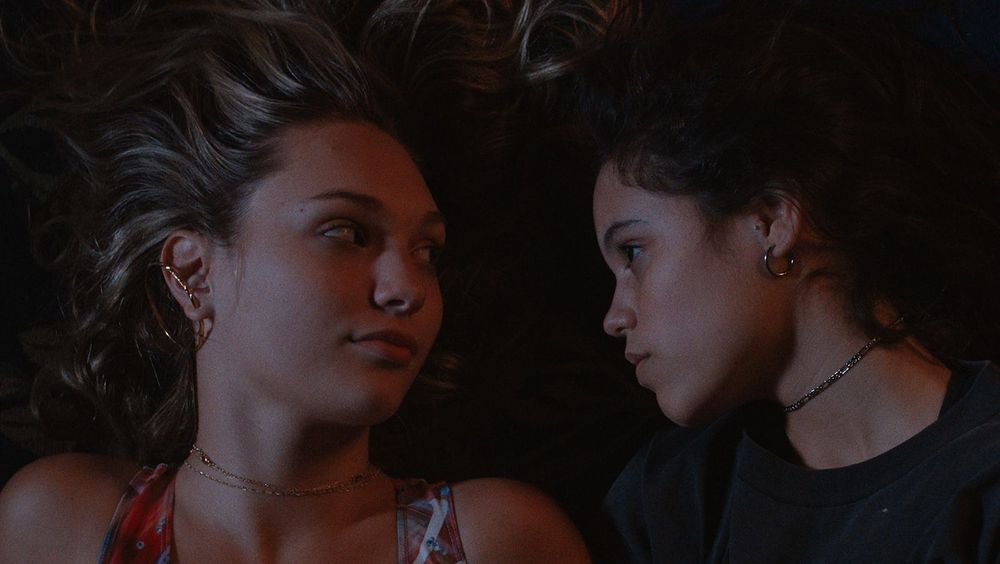School shootings get massive media coverage, often drawing international attention. With the help of the media, we mourn the lives lost and try to find a reason behind such senseless murder. After the cameras leave, however, few care to check on the survivors.
The kids walk the same halls in which their schoolmates lost their lives, and we somehow expect them to resume normal lives – however, it’s near impossible to endure such an event and emerge without a mental scar.
The Fallout focuses on the struggles of Vada (Jenna Ortega), an adolescent girl who survives a school shooting.
The Fallout explores the grief survivors of school shootings endure

During a school shooting, Vada hides in a stall with influencer Mia (Maddie Ziegler). They are later joined by a blood-stained student named Quinton (Niles Fitch). The three try to stay as silent as possible as they listen to the gunshots and wails outside.
The three survive, but Vada emerges from the ordeal broken. She has nightmares and struggles to follow her BFF Nick into activism. Vada drives away her family and former friends as she grows closer to Mia and Quinton.
Vada’s grief prevents her from using the bathroom, leading to her wetting herself. She tries to self-medicate by using ecstasy, but her experiment fails as the drug makes her clumsy. Vada can’t get any help from therapy as she insists that she’s okay.
Mia and Vada eventually get intimate. However, the pair fall out, and Vada tries to kiss Quinton, who rejects her. Vada’s life is falling apart, but she gets it together before she crumbles.
Vada confronts her sister, and they have a heart to heart about their relationship. Vada also repairs her relationship with her father and reconnects with Mia.
Just as it looks like Vada’s emerging from the darkness in her life, a notification pulls her back into the abyss: a school shooting in another state has claimed more lives. The film ends as we hear Vada struggling with a panic attack.
The ending demonstrates that Vada has a long way to go before she manages her grief. It’s a brutal ending, but it portrays grief in its true form: as a malignant feeling that can show up at any time.
Director Megan Park told Hollywood Life that she wanted to show that grief never ends but give people a glimmer of hope that one can learn to live with it:
“It’s a difficult ending for sure. I think you hopefully leave with a glimmer of hope that Vada is starting to gather the skills to learn how to cope and to learn how to live her life holding this trauma with her that will stay with her forever in some way, shape, or form.”
The Fallout is not based on a true story but draws inspiration from real events
The Fallout is not based on a true story, but it draws from real-life events. School shootings are common in the United States, with a 2018 report by The Washington Post dubbing it a ‘uniquely American crisis.’
Writer and director Megan Park used similar terminology to describe school shootings in the United States. “It certainly feels like a really big problem that uniquely American right now with these school shootings,” she told Hollywood Life.
Megan grew up in Canada, where such events rarely occur. She’d been thinking about making a production about gun violence for a while, but she held off on the idea. However, the Stoneman Douglas High School shooting in Parkland, Florida, pushed her to write the script.
Park created Vada’s character and experiences by listening to survivors of school shootings. It was the only way she could learn about the experience, having never been involved in one. She told Deadline:
“It almost felt wrong to dig into the subject matter and immerse myself in something I wasn’t apart of or will never be able to fully comprehend unless I’m ever put in that situation.”
Megan hopes that the young generation will force reforms that eradicate school shootings. “I hope that there is change,” Park told Hollywood Life. “I have hope with the younger generation that they are going to really stand up and make this change happen. I hope it’s sooner than later.”